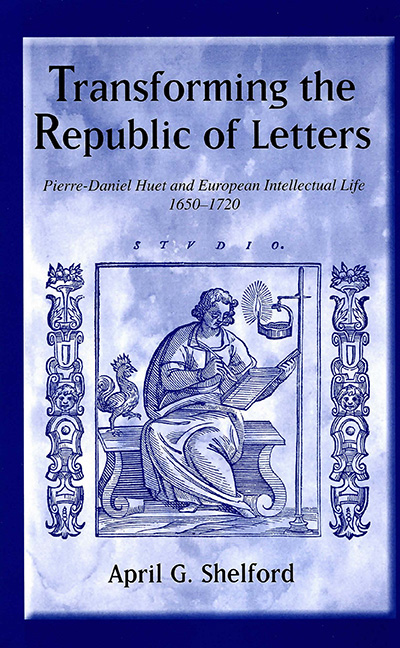Book contents
- Frontmatter
- Dedication
- Contents
- List of Illustrations
- Acknowledgments
- Introduction
- Chapter 1 The Road to Parnassus, 1648–61
- Chapter 2 The Lives of Poems, 1653–63
- Chapter 3 The Empire of Women, 1651–89
- Chapter 4 The Gate of Ivory, 1646–90
- Chapter 5 Defending Parnassus, 1666–92
- Conclusion A Dialogue with the Future
- Notes
- Selected Bibliography
- Index
Chapter 5 - Defending Parnassus, 1666–92
Published online by Cambridge University Press: 11 May 2017
- Frontmatter
- Dedication
- Contents
- List of Illustrations
- Acknowledgments
- Introduction
- Chapter 1 The Road to Parnassus, 1648–61
- Chapter 2 The Lives of Poems, 1653–63
- Chapter 3 The Empire of Women, 1651–89
- Chapter 4 The Gate of Ivory, 1646–90
- Chapter 5 Defending Parnassus, 1666–92
- Conclusion A Dialogue with the Future
- Notes
- Selected Bibliography
- Index
Summary
Mais aussi est-il vrai que j'ai entièrement perdu le dessein de réfuter [la philosophie des jésuites]; car je vois qu'elle est si absolument et si clairement détruite, par la seule établissement de la mienne, qu'il n'est besoin d'autre réfutation.
—René Descartes to Marin MersenneThe Bishop Defiant
In 1700, Pierre-Daniel Huet, the Bishop of Avranches, attained a dubious distinction: French authorities seized a copy of his Nouveaux mémoires pour servir à l'histoire du cartésianisme in a cache of nearly forty contraband books in Paris. While the short satire stood out in a collection composed mostly of theological polemics, the seizure itself was typical. During the final decades of the seventeenth century, ancien régime censorship was at its most rigorous. But why would Huet publish (or permit to be published) any work illegally, especially one as anomalous among his works as a vernacular satire? Because Edme Pirot, the Sorbonne censor we met earlier (chapter 4), refused to approve the book in April 1692. Pirot claimed that writing satires was beneath a bishop's dignity. Huet countered that he had satisfied the demands of propriety by arranging to have it published under someone else's name (or, rather, initials). Pirot would not budge. Huet in turn refused to relinquish this novel way (for him, at least) of answering the critics of the Censura philosophiae cartesianae (1689) and eviscerating Adrien Baillet's La vie de M. Descartes (1691).
The Nouveaux mémoires did more than respond to specific intellectual enemies, however. In it, Huet defended his entire world of learning, shifting from learned (generally Latin) arguments to vernacular social criticism. Intended to warn literate, if not erudite readers about the dangers of fraudulent learning, the satire was a late, rear guard action in Huet's lifelong defense of the Republic of Letters as he knew (and loved) it. In order to fully understand both the satire and Huet's overall defensive strategy, we need to examine his earlier responses to intellectual opposition and criticism. As we will see, these were always shaped and informed by the ethos of learning and appropriate behavior into which he had been socialized.
An examination of Huet's responses to intellectual opposition and criticism also illuminates the connections between the intellectual and cultural conflicts that ultimately redefined the Republic of Letters in the final decades of the seventeenth century.
- Type
- Chapter
- Information
- Transforming the Republic of LettersPierre-Daniel Huet and European Intellectual Life, 1650–1720, pp. 144 - 183Publisher: Boydell & BrewerPrint publication year: 2007

